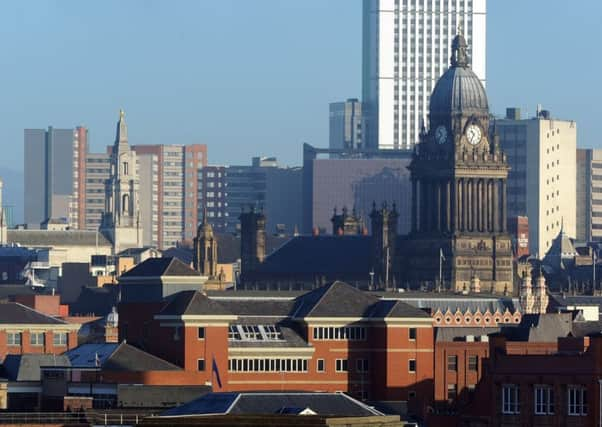Anthony Clavane: It might be unfashionable to be so optimistic but I like to think Leeds is about to enter another golden age


Perhaps it was because I was basking in the unseasonably sunny weather. Perhaps it was because I had just been told by a student – the daughter of an Essex-based friend – that she’d experienced an epiphany in the university. Perhaps it was because I had just re-read an extract from Charles Dickens’ novel The Lazy Tour of Two Idle Apprentices.
Written 160 years ago, Dickens described two passengers arriving at the railway station. “Thus, Thomas and Francis got to Leeds,” he began, “of which enterprising and important commercial centre it may be observed with delicacy, that you must either like it very much or not at all.”
Advertisement
Hide AdAdvertisement
Hide AdSome things never change. The city still provokes extreme reactions. Why this is, I’m not entirely sure. It is one of the questions I will be addressing with fellow author James Oddy at the Carriageworks Theatre next week.
Please forgive the plug. But it really bugs me, as I’m sure you might have noticed from previous columns, and James and I would appreciate any input at our event, which closes the Leeds Lit Fest.
I like to think my beloved mum, who died two months ago, would have been impressed at the way I effortlessly segued into that plug. She was my unofficial publicity officer, loyally turning up at all my talks and plays.
She was as proud of me as I am of Leeds. I was proud when I read in GQ magazine last year that the reporter had “fallen in love” with the place. I was proud when I read in last Saturday’s Times that Keira Knightley’s three-year-old daughter keeps asking to return to the city. And when Helen Pidd, the Guardian’s north of England editor, tweeted Knightley’s comments. And when Channel 4 decided to locate its headquarters here. I could go on and on. There is a lot to be proud about these days.
Advertisement
Hide AdAdvertisement
Hide AdSomething is stirring in Dickens’ “beastly place”. A week today, the Leeds-born actor Jonny Magnanti will give a powerful reading of V, one of the greatest poems of recent times. It is Tony Harrison’s masterpiece, capturing a moment in the city’s – and country’s – history when the collapse of traditional industries undermined a whole way of life.
Some critics liked it very much, others not at all; a “torrent of filth” seethed the philistines (Mary Whitehouse, Conservative MP Gerald Howarth and The Daily Mail).
V, a long 1980s poem in rhyming quatrains, deliberately echoes Gray’s Elegy in a Country Churchyard. It is about vandalism, social division and marginalisation. But it is also, in my view, about aspiration, a lament for a golden age of ambition; an era when a new, open, meritocratic society was being forged. It was inspired by Harrison’s discovery that his parents’ grave in Holbeck had been vandalised. He imagines an exchange with the drunken skinhead who has aerosolled graffiti on the tombstone, and ruefully reflects on society’s schisms.
The distinguished cultural commentator Bernard Levin hailed it as “a meticulously controlled yell of rage and hope combined, a poisoned dart aimed with deadly precision at the waste of human potential.”
Advertisement
Hide AdAdvertisement
Hide AdDespite the bleakness of its vision, however, the poem ends on an optimistic note, expressing the hope that society’s polarities will disappear – that “V” will come, once again, to mean “victory”.
It might be unfashionable to be so optimistic but I like to think we are about to enter another golden age. There’s the ambition of Leeds 2023, a year-long arts festival, of Leeds Lit Fest, which celebrates a vibrant and thriving literature scene, and of Marcelo Bielsa’s brave new Leeds United, on the cusp of returning to the Premier League after 15 years in the wilderness.
As I passed the Town Hall the sun illuminated its Corinthian columns and imperious stone lions, which will always be associated with Cuthbert Brodrick’s ambition.
The Victorian visionary’s opus put the city on the map, attracted thousands of tourists and was hailed as an architectural gem.
Most of all, of course, it announced to the world that Leeds was having a moment.